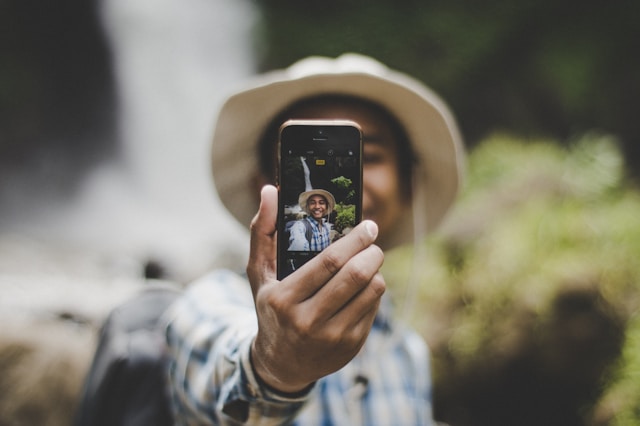
Social media has transformed the way we communicate, share, and express ourselves.
But it has also sparked debates about its role in fueling narcissistic tendencies.
With platforms like Instagram, TikTok, and Facebook encouraging constant self-presentation and validation, experts are exploring whether social media is contributing to what some call a “narcissism epidemic.”
This blog delves into how social media shapes self-perception, fosters competition, and impacts mental health and relationships.
Social Media and Its Influence
Social media platforms thrive on user engagement, which is often driven by personal content.
Whether it’s selfies, curated feeds, or updates about achievements, these platforms encourage users to showcase an idealized version of their lives.
Self-presentation and idealization
Social media allows users to present their lives in the best possible light, often filtered through edits, captions, and careful curation.
Highlight reels vs. reality
On social media, people often showcase the highlights of their lives, such as vacations, celebrations, and personal achievements.
This focus on the positive can create an unrealistic portrayal of life.
Instead of sharing the messy, challenging moments that everyone experiences, many users only share their successes and joyful moments.
The rise of “selfie culture”
The phenomenon of taking and sharing selfies has become a significant aspect of social media.
Research published in Computers in Human Behavior found that those who frequently post selfies may experience higher levels of narcissism.
Impression management
As people engage in self-presentation, they often prioritize how they appear to others over who they genuinely are.
This “impression management” can lead to a disconnect between their online persona and their true self.

Validation and external rewards
Social media platforms are designed to provide instant gratification:
Likes and comments
When you post something on social media, receiving likes and comments feels rewarding.
This quick feedback triggers a release of dopamine, the brain’s “feel-good” chemical.
As a result, users may start to crave these interactions, creating a cycle where they post more often in search of that same instant approval.
Followers and shares
Having more followers or getting a post to go viral can feel like a sign of social status.
The number of followers or shares can seem to validate our popularity and influence, feeding into the desire for recognition.
In many ways, the size of one’s online following has become a reflection of status, both online and offline.
A 2020 study in the Journal of Social and Clinical Psychology found that individuals with higher social media use reported more significant reliance on external validation for self-worth, a hallmark of narcissistic behavior.
Comparison and competition
Social media naturally promotes a culture of comparison and competition, where users constantly measure themselves against others.
Comparing metrics
One of the easiest ways to compare ourselves to others is by looking at metrics—likes, shares, comments, and follower counts.
It’s common to measure your worth by these numbers, often comparing them to those of others.
Lifestyle envy
Another common issue on social media is “lifestyle envy.”
When users see their friends or peers sharing milestones, vacations, or life achievements, it can lead to feelings of jealousy or a sense that they’re falling behind.
The Journal of Adolescence published a study highlighting that prolonged social media use correlates with increased social comparison, a behavior that feeds both narcissism and low self-esteem.

Studies Linking Social Media Use to Narcissistic Traits
Numerous studies have examined the connection between social media and narcissism:
The University of Michigan Study (2013)
A study conducted by the University of Michigan in 2013 found a significant link between frequent social media use and higher levels of narcissism.
The research indicated that individuals who spent more time on platforms like Facebook were more likely to score higher on narcissism scales, showing tendencies like an inflated sense of self-importance and a greater need for attention and validation.
Psychological Reports (2018)
In 2018, a study published in Psychological Reports examined the specific relationship between posting selfies and narcissistic traits.
The research found a strong connection between the frequency of selfie posting and narcissistic behaviors, suggesting that individuals who post selfies regularly may be more likely to focus on their appearance and seek validation from others.
This need for external approval can be a key feature of narcissism, where self-worth is tied to how others perceive them.
Frontiers in Psychology (2021)
A more recent study published in Frontiers in Psychology in 2021 explored the impact of different types of social media platforms on narcissistic behaviors.
The study concluded that platforms that focus heavily on visual content, such as Instagram, are more likely to encourage narcissistic traits compared to text-based platforms.
This is because visual-centric platforms emphasize appearance and popularity, reinforcing the need for attention, likes, and followers.

The Impact of Narcissism
Social media has been linked to the rise of narcissistic traits, and these can have a significant impact not just on individuals, but on relationships, mental health, and even society as a whole.
Interpersonal relationships
The emphasis on self-presentation and seeking validation through social media can make relationships more difficult and strained.
Superficial connections
When a person focuses more on their appearance and online persona than on building real, meaningful connections, it can result in shallow relationships.
These connections may lack depth and genuine emotional bonding.
Conflict
The constant comparison to others online, especially regarding followers, likes, or achievements, can lead to feelings of jealousy or competition.
Over time, this can cause tension and conflict in both friendships and romantic relationships.
Empathy deficits
Narcissistic behaviors often involve a lack of empathy for others.
People who are overly focused on their own image may struggle to understand or care about the feelings of those around them, making it hard to maintain healthy, balanced relationships.

Mental health
Narcissistic traits fostered by social media can also take a toll on an individual’s mental well-being.
Anxiety and depression
The pressure to maintain a perfect online image can be overwhelming.
People may experience anxiety about how they are perceived or stress about getting enough attention and approval.
This constant striving for validation can lead to feelings of anxiety or even depression.
Body image issues
Social media platforms, especially Instagram, often showcase unrealistic beauty standards.
This can contribute to body dissatisfaction, particularly among young users who may feel pressured to look a certain way or measure up to what they see online.
Addiction to validation
Constantly seeking likes, comments, and other forms of online approval can lead to an addiction to validation.
If a post doesn’t receive the expected amount of engagement, it can cause anxiety and reinforce feelings of inadequacy.
Societal Impact
The rise of narcissism on social media has effects that extend beyond individual users and influence society as a whole.
Cultural shifts
Social media has normalized influencer culture, where self-promotion and materialism are often celebrated.
This can lead to a shift in societal values, placing more importance on personal branding and outward appearances than on meaningful contributions or values.
Misinformation
Narcissistic tendencies, such as the desire for attention, can contribute to the spread of misinformation.
Some people may share false or misleading information just to get more likes or followers, often without regard for the consequences.
Impact on younger generations
A 2022 study in Child Development found that excessive screen time during adolescence is linked to lower emotional intelligence and higher levels of egocentrism.
This means that young people may struggle with understanding others’ emotions or seeing things from different perspectives, which can impact their social interactions and development.

Final Thoughts
Social media isn’t inherently bad, but its design encourages behaviors that can fuel narcissistic tendencies.
By understanding its influence, users can develop healthier habits and resist the pull of constant validation and comparison.
Encouraging mindful social media use and promoting platforms that prioritize meaningful interactions over metrics can help mitigate these effects.


